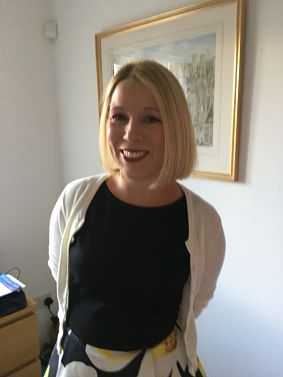Breast cancer affects around 54,000 women in the UK each year, and 40 per cent of these patients require a mastectomy. Breast reconstitution following a mastectomy can dramatically improve a woman’s quality of life, and ranges from simple procedures using an implant to more advanced techniques involving transferring tissue from the woman’s back or abdomen.
Dr Potter first identified the need for more data from interviews with breast cancer patients as part of her PhD at the University of Bristol. This showed that women who had undergone breast reconstitution after a mastectomy felt they had been unable to choose what procedure would suit them best because of a lack of good-quality evidence.
As a senior researcher at Bristol, Dr Potter is seeking to address this by exploring the feasibility of randomised controlled trials to assess the clinical success and cost-effectiveness of breast reconstruction. This involves randomly allocating participants either to the group receiving the treatment in question or to a control group receiving standard treatment (or placebo), to reduce bias when trying a new treatment.
Until recently, there were methodological and cultural barriers to conducting randomised controlled trials in the field of breast reconstruction. But thanks to research advances and a more evidenced-based culture among breast reconstruction surgeons, such trials now look more feasible.
Dr Potter has won a five-year National Institute for Health Research (NIHR) Clinician Scientist Fellowship award at Bristol to explore the best ways to measure the outcomes and costs of reconstructive breast surgery and determine whether it is possible to randomise patients into a trial comparing two types of implant-based surgery.
She won the award with the help of an EBI Bridging Fund at the end of an NIHR Academic Clinical Lectureship at Bristol’s Centre for Surgical Research (Royal College of Surgeons’ Trials Centre and Medical Research Council Methodology Hub).
The NIHR Clinician Scientist Fellowship proposal grew out of her work for her PhD and the Academic Clinical Lecturer award. During this time she received an NIHR Research for Patient Benefit (RfPB) Principal Investigator Award and an Academy of Medical Sciences Starter Grant, in addition to winning national prizes, publishing a number of research papers and making numerous presentations.
As well as allowing her to prepare the best case possible for the NIHR Clinician Scientist Fellowship, the EBI Bridging Fund enabled her to complete the RfPB grant, while undertaking a National Training Interface Group Oncoplastic Breast Surgery Fellowship at St Helen’s and Knowsley Teaching Hospitals NHS Trust, a centre of excellence for oncoplastic and reconstructive surgery in Liverpool. As a result she finished her specialist surgical training and became a consultant surgeon and senior lecturer.
